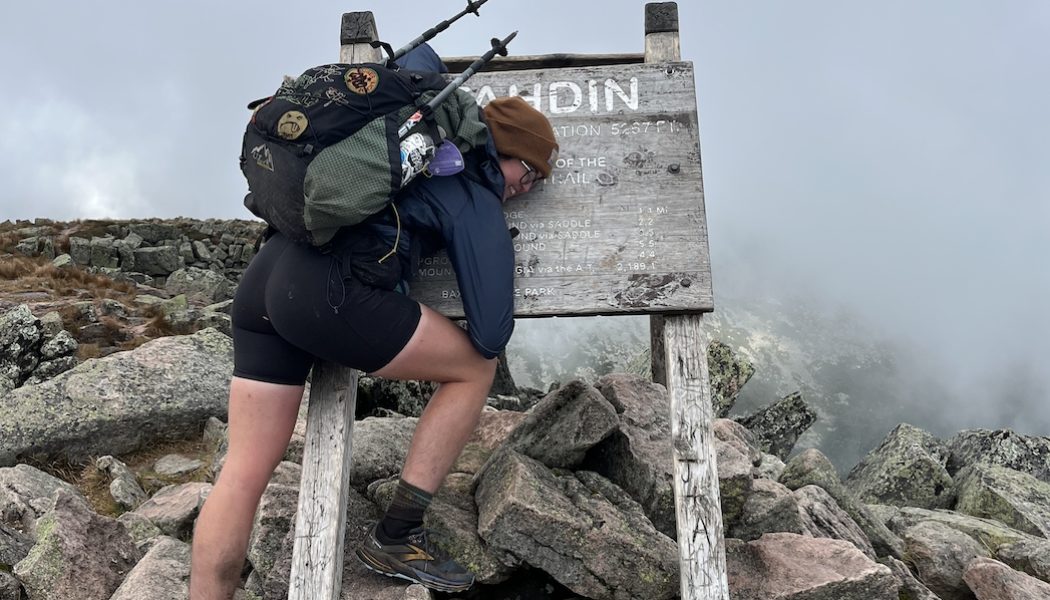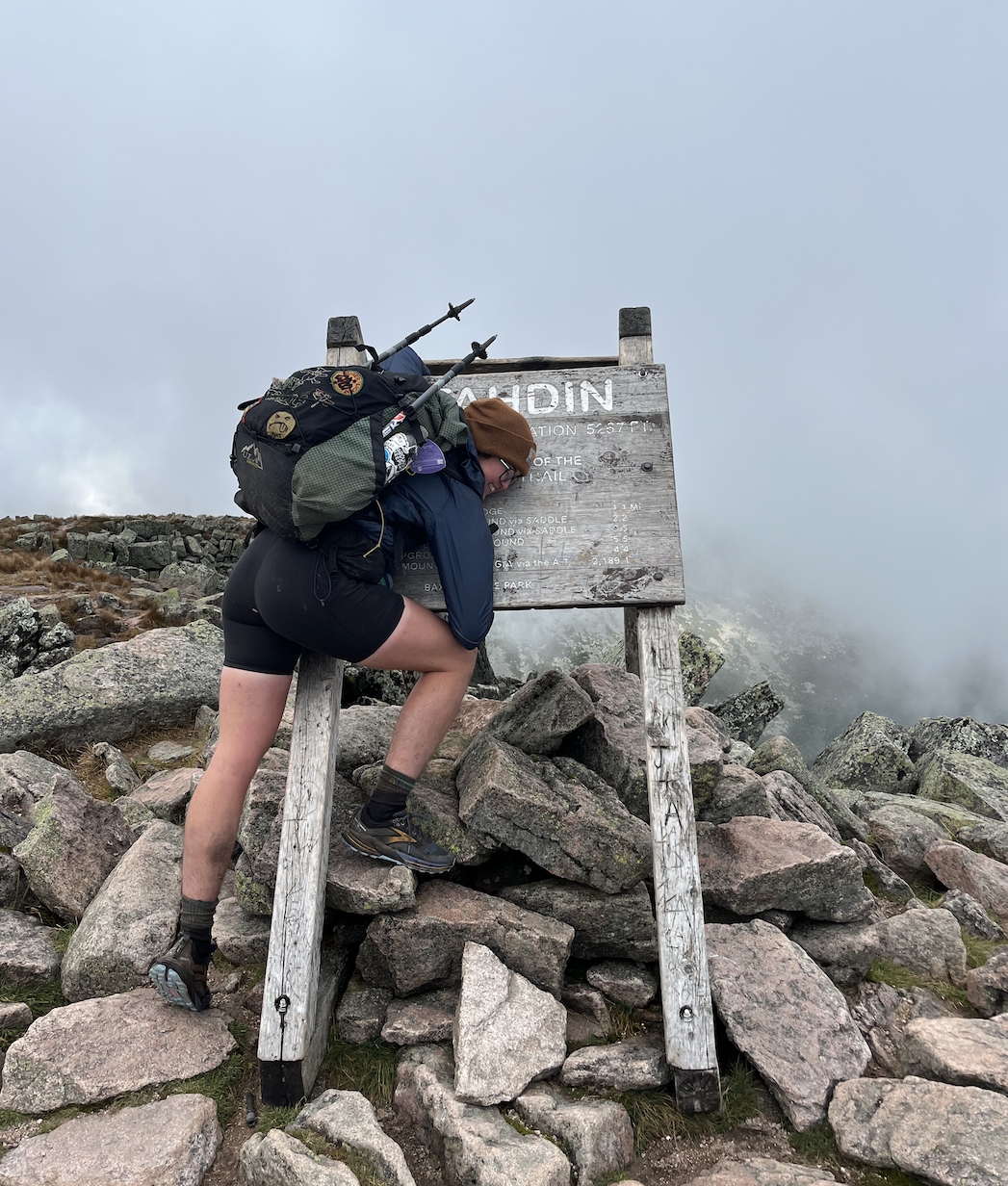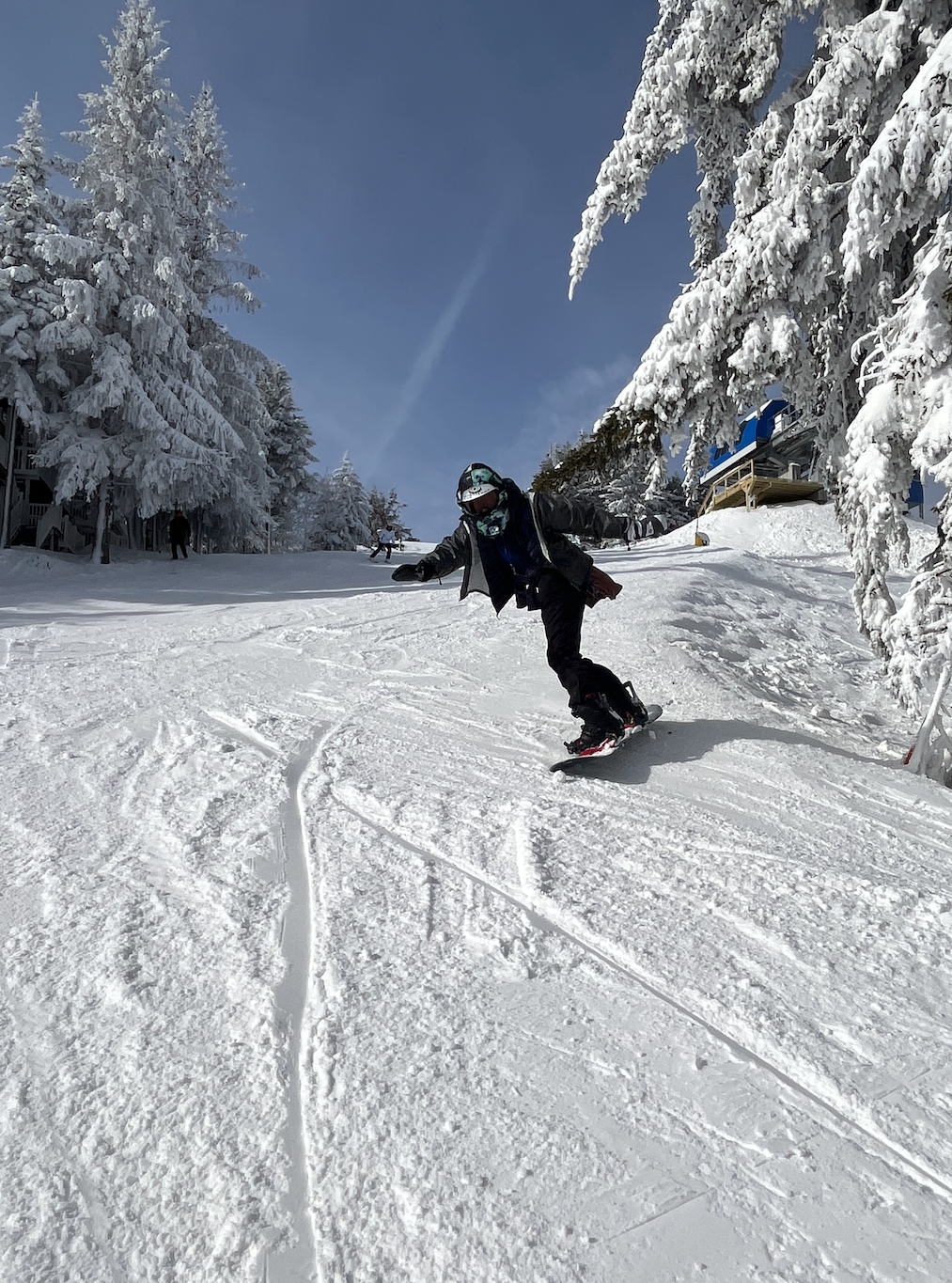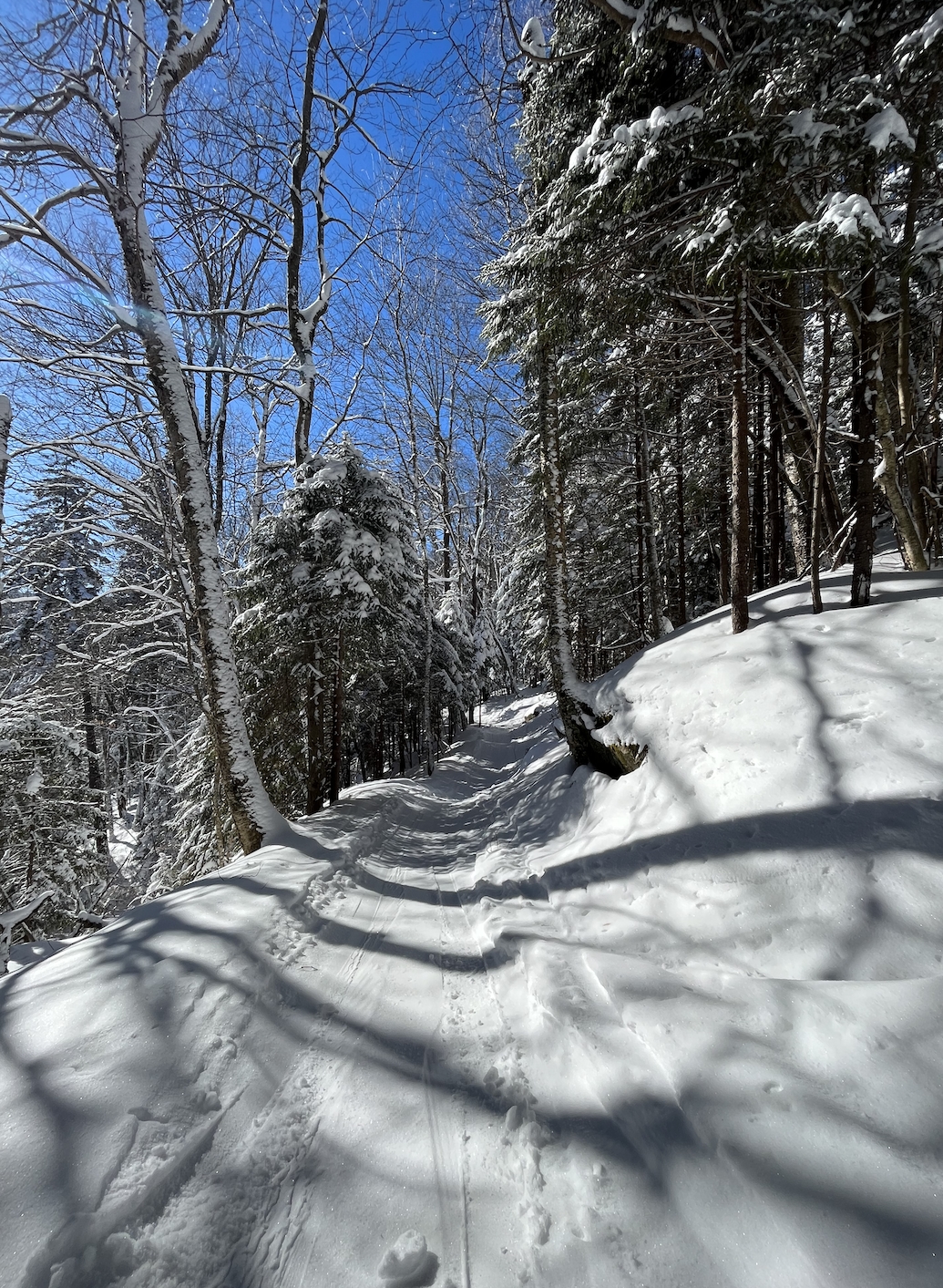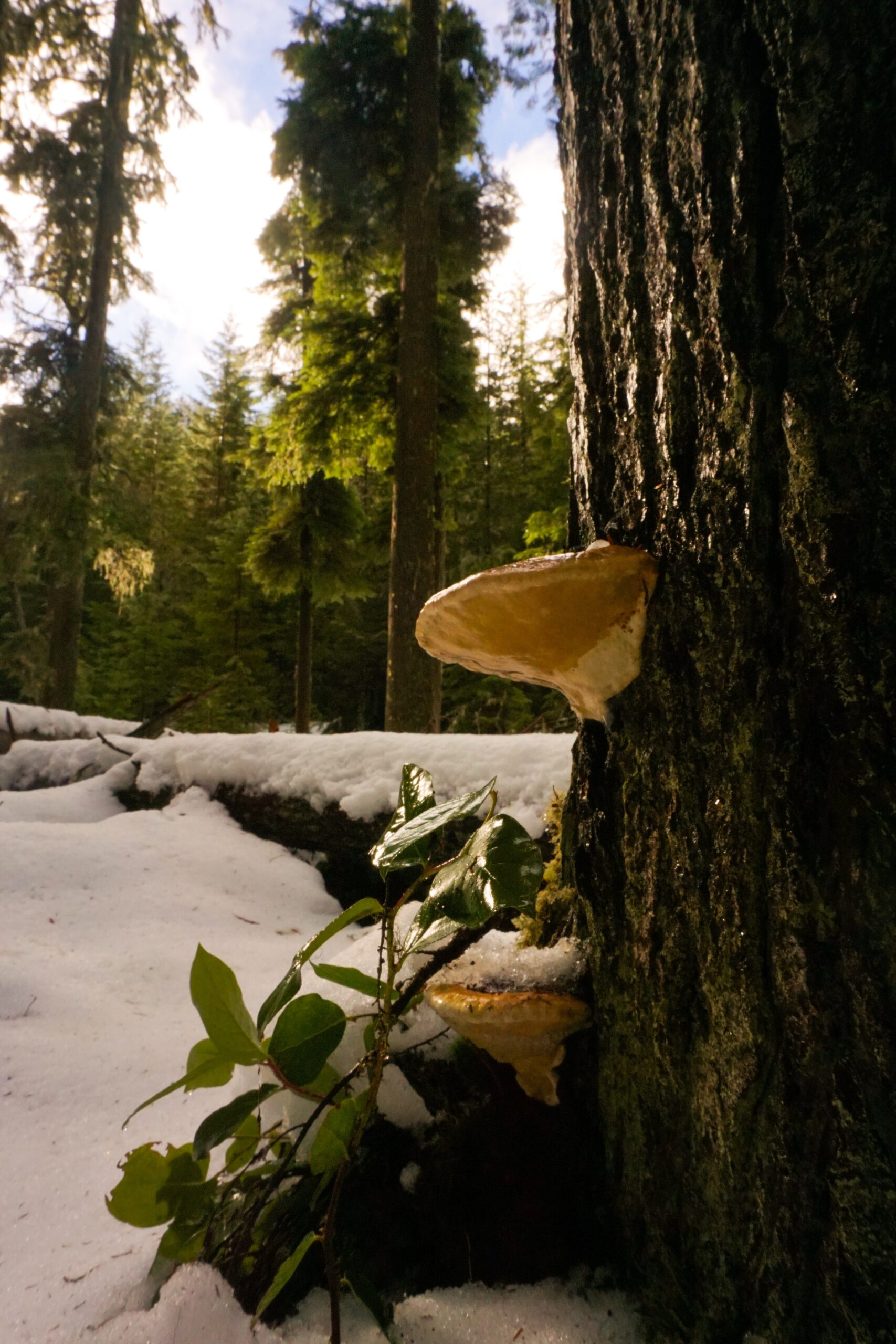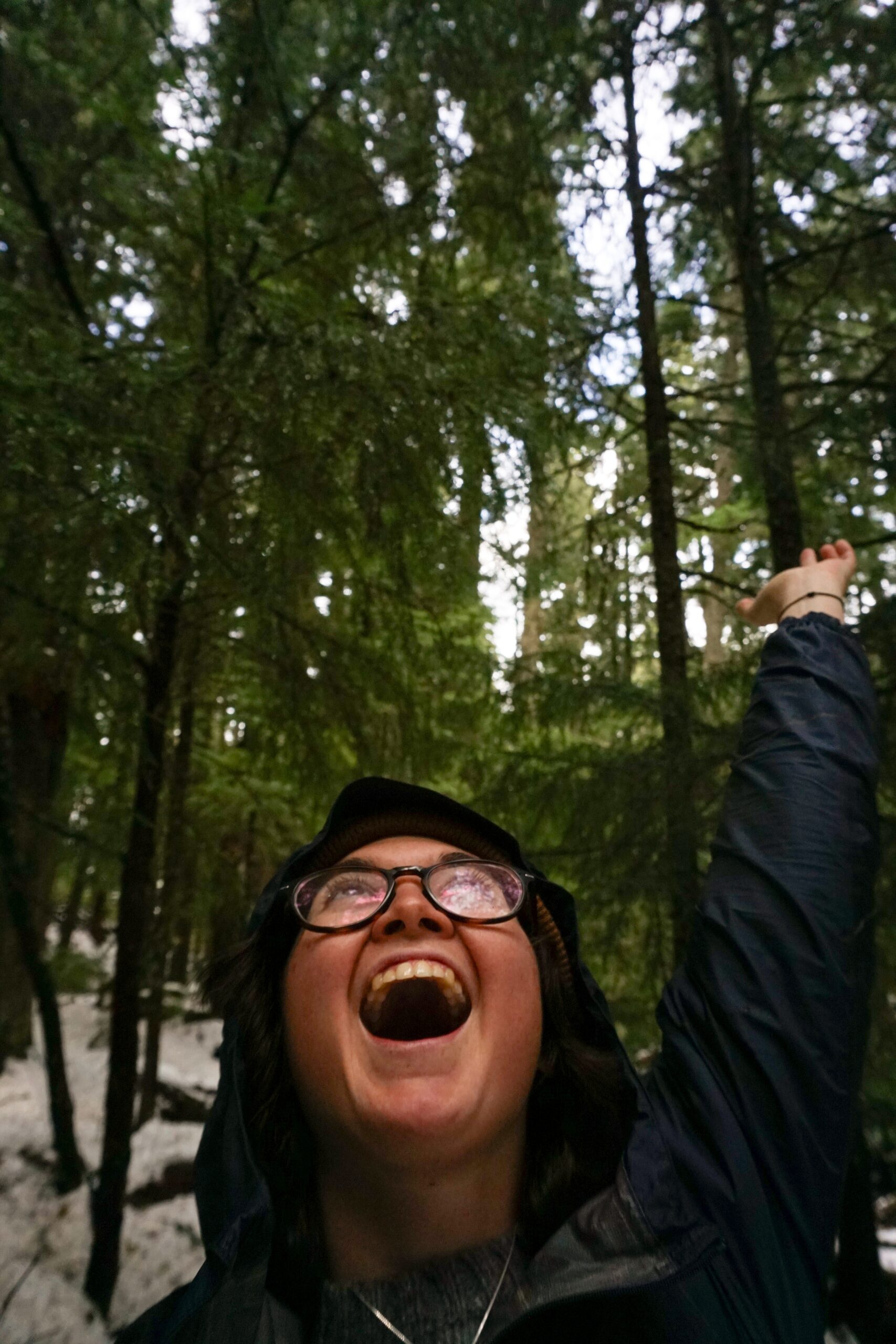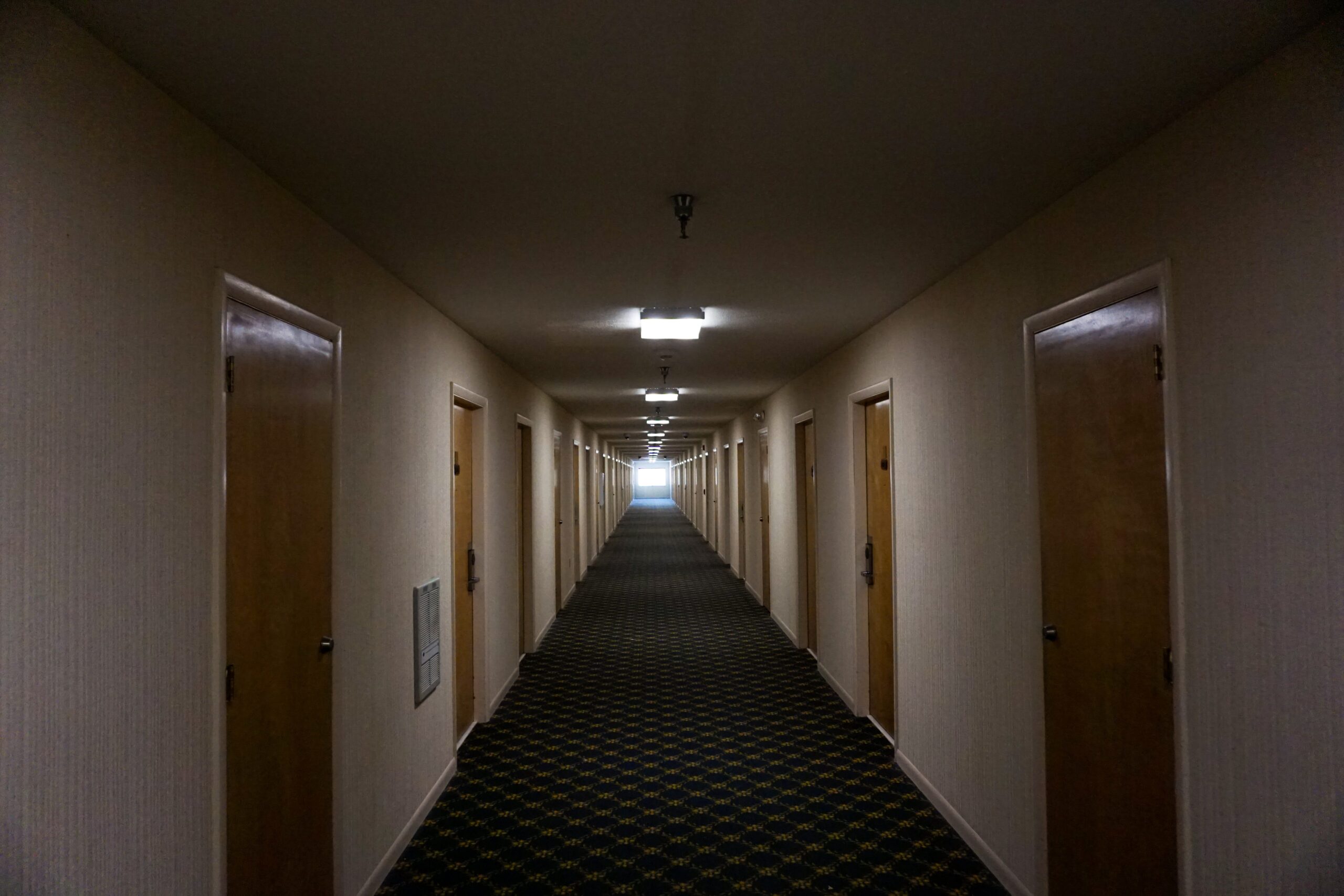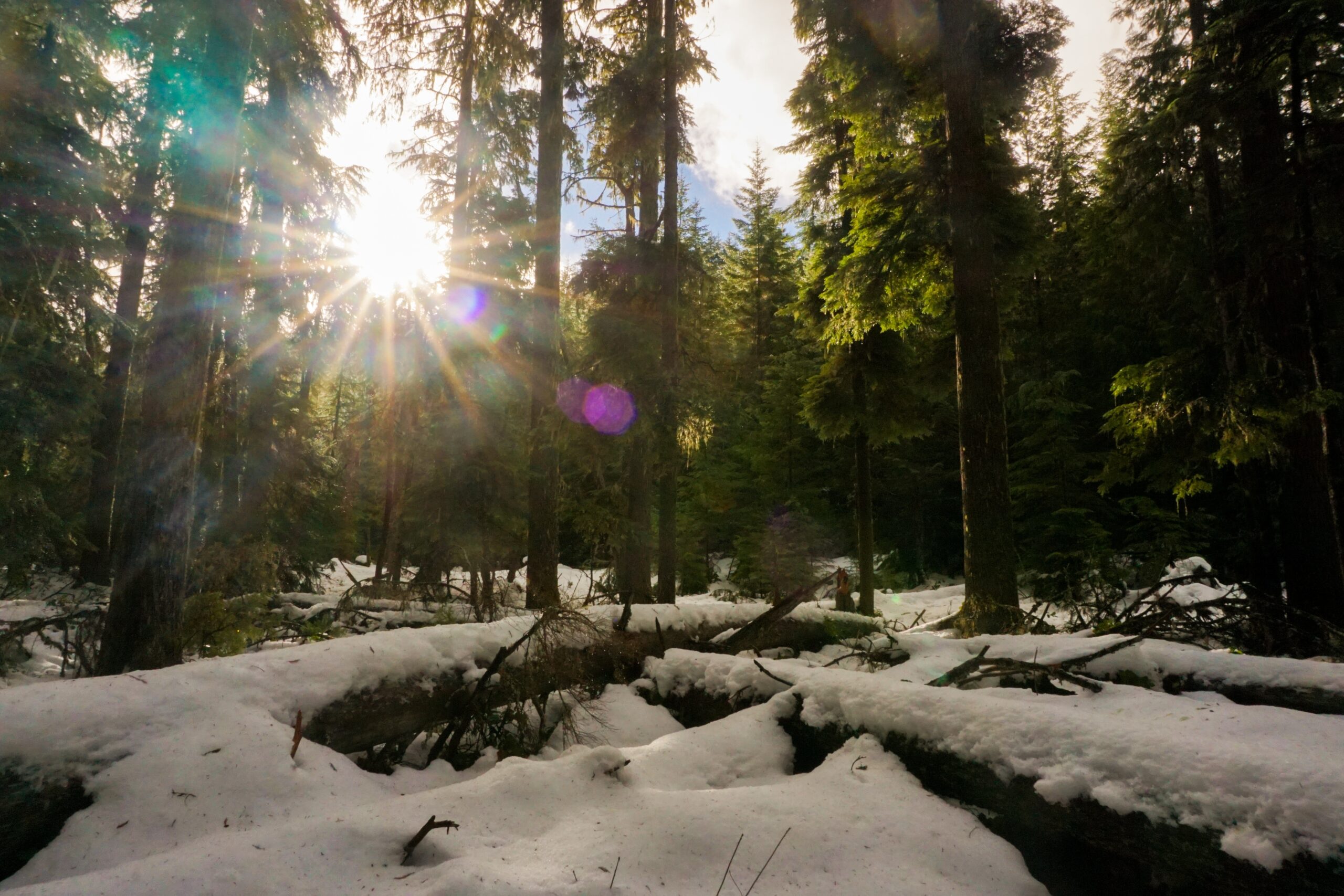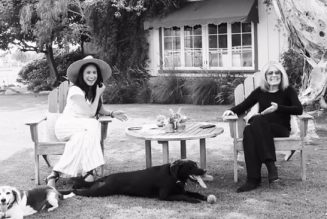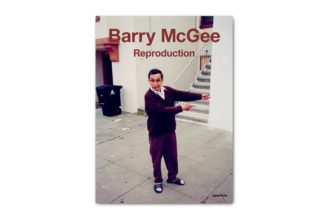When I hugged the Katahdin sign at the terminus of my Appalachian Trail thru-hike, I realized the only thing I wanted to do was keep going. My heels were on fire, my body was malnourished, and I was more tired than I’d ever been in my life — but I was happier and more free than I’d ever felt too.
Usually, people take a little while between thru-hikes to gather more funds, process what they went through, and start new life paths.
But I was hooked. I made up my mind that I wasn’t quite done with long trails yet and decided to thru-hike the Pacific Crest Trail the following summer.
That meant finding a temporary job to fill the intervening months, preferably one that would let me spend as much time out in nature as possible. To save up for the PCT, I took a seasonal job as a lift operator at a ski resort. I had officially stepped into the dirtbag lifestyle.
The Dirtbag Lifestyle
Every thru-hiker has been tempted to abandon the traditional path society has laid out for us: get a job, get married, have kids, etc. There’s nothing wrong with this path, but it’s not for everyone. So, what happens when you don’t take it?
You become a dirtbag — and figure out how to live with the consequences.
Dirtbagging can take many forms. Very simply, it’s a lifestyle that prioritizes outdoor adventure over traditional values like stability and financial security. For instance, some outdoorsy people fall into vanlife so they can live inexpensively and visit outdoor destinations more easily. Many take seasonal outdoor jobs with guiding companies, ski resorts, and the like.
Why pick a career that pays little, potentially involves living in a dormitory, and is temporary? Because for many of us, it’s more rewarding than a cushy desk job. It allows us to continue pursuing the outdoor adventures we’re most passionate about.
My work as a lift operator at a ski resort mainly entails pushing buttons on a ski lift and shoveling snow all day, but it also means I get to snowboard daily, live in the mountains, and have the freedom to thru-hike the Pacific Crest Trail this coming summer. It allows me to connect with like-minded friends who want a memorable chunk of their lives to be lived outside.
If the choice is between low finances or sitting at a desk job for the next however many years, at this moment in my life, I’m choosing the low finances. Even if that choice also comes with numb toes and subpar living conditions.
I want to live this bit of my life outside, doing the things I love — backpacking, snowboarding, meeting outdoorsy friends — as much as possible. So far, it’s been the happiest year of my life.
However, dirtbagging isn’t all sunshine and roses. It has its downsides — and if you’re thinking about making the leap into this lifestyle, you need to know about them.
Being Broke
Being a dirtbag with a penchant for thru-hiking means sacrificing temporary fun to save up for the six months I’ll be unemployed. I don’t make a ton of money working at a ski resort — but I’ll save enough for another thru-hike as long as I’m intensely frugal.
Every time I’m tempted to go downtown with friends, I remind myself that even a $3 beer is a $3 beer I could be enjoying at the end of a 20-mile day in the desert. Thirty bucks for dinner could’ve been a hotel room split four ways with hiker friends.
Envisioning my summer goals in this way helps me stay on track with my budget. However, this also means living like a hermit and missing out on nice things today to save money for later.
I can’t pursue hobbies that cost more money — like going to art classes or joining a club team — but I can find other free ways to occupy my time. For me, these include writing, photography, hiking, painting and snowboarding (free because I work at a ski resort, which, again, was sort of the point).
When friends invite me out for dinner or drinks, I invite them to do those free things with me instead. I find I can form a stronger bond with someone when I create art with them rather than finish a pitcher with them anyway.
Meanwhile, I cook almost all of my own meals and eat a ton of eggs and soup. I try to keep my grocery budget under $50 for the week. This means I’m not cooking extravagant dinners, but it’s enough to get by.
It can be rewarding to save in this way while looking forward to a thru-hike. The immediate gratification isn’t there from spending money on drinks or dinners out. However, I know in the long run, it’ll pay off in my experiences over the summer.
Living like a gremlin isn’t for everyone, but it does make the occasional nice dinner feel incredible (kind of similar to being on trail!).
Of course, it helps to be frugal during the thru-hike as well. On trail, I typically put off zero days until I desperately need them — maybe when my body has gotten too sore or I’ve started smelling myself. Even then, on the AT, I would usually nearo into towns to avoid paying for two nights at a hotel.
My 23-year-old stomach is really good at tolerating all the junk I throw at it, so I often eat an inexpensive diet of Snickers, ramen, and instant mashed potatoes on trail. My sodium intake might be staggering, but the views from my thru-hike will be too. Spending half the year hiking and the other half working an outdoor job keeps me healthy even though I’m eating terribly.
E-BOOK – How To Afford a Thru-Hike
Mental Strain
It can be draining to constantly calculate finances and monitor my every purchase. It makes it difficult to treat myself to a tasty snack at the grocery store or a piece of art I really like without feeling guilty.
What’s more, many dirtbags fear they’ll never be able to establish a more traditional career or contribute enough to retirement savings. For instance, I worry about the gap in my resume: how will I ever explain to a hiring manager my life’s sudden derailment from a typical 9 – 5 trajectory to long-distance hiking and working as a lift operator?
Someday I want to pay off my student loans, afford an apartment, and save for retirement. It’s stressful, at times, that I’m deferring those goals to pursue an unconventional path. Living alongside that stress is as much a part of the lifestyle as the magic of pow days and the camaraderie of other dirtbags.
The dirtbag lifestyle is fun, but again, it’s not lucrative — nor is it something that can be pursued as easily without an able body. The thought of getting injured is terrifying when you rely on your body to hike 2,000+ miles for a whole summer and then to do manual labor all winter.
Then there’s health insurance, which is both expensive and confusing. I’m still young enough to be on my parents’ health insurance, for which I’m grateful. Some dirtbags just forgo it altogether — which could lead to crippling medical bills on top of lost wages if they ever get injured.
When under financial strain, it’s important to focus on the things you do have — good friends, a place to sleep, food to eat (even if it is soup) and the ability to go outside. I also read several books about the trail that I’m planning on thru-hiking to get myself excited and remind myself what it’s all for. The books make the trail feel more real: a concrete goal, rather than just some abstract dream.
Comparison Is the Thief of Joy
In the age of social media, it can be extremely difficult to avoid comparing ourselves to others. I see other friends my age growing up and settling down with significant others, houses, pets, jobs, and even kids. When I meet up with friends my age who aren’t living like dirtbags, the way I choose to live my life feels so strange.
When the conversation turns to mortgages, remodeling homes, or promotions at work, I feel like I’m out of place. Behind the curve. Refusing to grow up. The most broke person in the room.
I guess in some ways I am — but I’m also in no rush to establish those things in my life. They will come in time, but right now, I’m prioritizing adventure and getting outside as much as possible while my body still works and I have the freedom and financial means to do it.
I try to reassure myself that there is also no such thing as being “behind.” My life can’t be compared to others’. Everyone has a different set of life experiences and choices that have led them to where they are today. The only person it does any good to compare yourself to is a past version of yourself. If you’ve changed and grown from who you were even a year ago, you’re making progress.
Solitude Also Means Isolation
As far as seasonal jobs go, it’s isolating working at a ski resort. Since I’m trying to save almost everything I’m making, I don’t have the financial means to travel and visit friends. Ski resorts are often in the middle of nowhere. It can be lonely — but it also allows me to see some incredible nature and visit parts of the country I haven’t seen before.
Whenever I feel sad or alone, I just go snowboarding or take a walk in the woods and remember all the awesome things my lifestyle allows me to do.
Lack of Stability
With the freedom of the dirtbag lifestyle comes a lack of stability. The first thing I realized about avoiding the typical 9 – 5 trajectory is that I don’t stay in one place long enough to have a long-term community of friends or a permanent sense of home. This can feel lonely.
Being free to adventure is incredible; it allows me to meet people from all over the world and experience nature and places I’ve never seen before. However, it also means that friends come and go in my life quickly. I can make some extremely close friends on a thru-hike (even a long-term romantic partner) and form strong bonds with people I work seasonally with — but at the end of the thru-hike or seasonal job, it’s unclear when or if I’ll see them again.
Maintaining long-term relationships is still possible in this lifestyle, but it takes work. Social media helps me stay in touch with friends and still feel connected. This is especially helpful during my thru-hikes — some of my friends live near long trails, giving us a fun way to catch up and talk about our lives when I pass through on a hike.
I often catch up with friends on the phone while I’m doing chores or cooking. I also have a habit of sending letters. A note of appreciation to a friend can make you realize how much they’ve added to your life as well as make their day.
It’s also an incredible privilege to be able to travel across the country every summer and make a bunch of friends along the way. It allows me to meet people of all different backgrounds and ages as well as further develop my perspective on life.
Another facet of this lack of groundedness is that I’m unable to have many material possessions. Most of my stuff is still at my parent’s house while I’m across the country working on the mountain. I have a minimal wardrobe here: three sweaters, two sweatshirts, three pairs of leggings and two base layers. And a puffy.
Most of the time I’m too physically exhausted after work to care much about what I’m wearing. I don’t buy new clothing at all these days. I rarely go out to shop at stores or order things online unless it’s something that I’ll be able to use in daily life.
I get rid of anything I don’t use from day to day because I don’t have a lot of space. I enjoy how all of my clothes and possessions have functions. However, if you can’t handle a minimal lifestyle — the dirtbag life is not for you.
Sometimes I start to panic about nowhere feeling like home and feeling like a drifter. However, in these times, I remind myself that my body is my home and I have my whole life to settle down somewhere. Why not see as much of the country as I can before I choose a place to call home?
Getting Comfortable With Discomfort
Going from thru-hiking to working at a ski resort and living in a hotel was a humbling experience. A hotel is an upgrade from a tent — but it still comes with similar struggles of cooking and keeping your clothes clean when there’s only one functioning laundry machine in the whole building.
This was frustrating to me at first because I was looking forward to going back to the comforts of a “normal” life after thru-hiking. However, I think deciding to do a thru-hike changes your perception of “normal” for the rest of your life.
I allowed myself the space to be frustrated and then got creative with the ways I chose to fix my problems.
A lack of an adequate washer and dryer allowed me to spend time hanging up my clothes all over my room to dry and listen to music while I did it. My limited cooking options (two rice cookers, a crockpot, and a pressure cooker) just meant I had to get more inventive with my meal prep. I usually cold-soaked my food on trail, so any hot meal was a step up from that.
I also focused on the fact that I actually had a bed and didn’t have to deal with condensation or cold since I slept inside. It might not seem like a lot, but when it’s 40 degrees and raining outside, I always felt thrilled to have a comfy bed to cozy up in.
Post-Trail “Depression”
For all the challenges of the dirtbag life, it can also be very rewarding. If you’re having trouble adjusting to it post-trail, don’t be too quick to write it off. Especially in the first months after your thru-hike, you might just be struggling with so-called post-trail depression. Many thru-hikers experience a low period after their hikes end. That feeling sucks whether you transition into dirtbagging or return to a traditional job.
Working outside in the mountains, using my body to it’s full capacity every day, and learning how to snowboard was the only way I could combat the lows I faced after thru-hiking. The prospect of going straight into a 9 – 5 after trail seemed intimidating, suffocating and jarring. In contrast, working a seasonal job on the way to another thru-hike seemed scary, but also fun and familiar.
It allowed me to know what I was facing. Maybe I’ll be ready for a 9 – 5 after the next trail, or maybe I won’t. For now, I know I’m able to be outside every day and use my body to do the things I love, which makes me happy.
READ NEXT – Post-Trail Depression: It’s Not What You Think
The Reality Is …
I lower my standards of day to day living for some incredible adventures over the summer. I find comfort in the little things: my freedom to explore, make new friends, get outside and appreciate the natural world. Oftentimes, I feel people’s main criticism about the dirtbag life or van life can be that you will get tired of it after a year or two. Even if you do — so what?
Choosing an unconventional way to live, even for a little bit, will open up your perspective on life and allow you to experience new things and meet people you may never have otherwise. Life is about stepping out of comfort zones. It’s how growth happens.
Everything is temporary — the uncomfortable parts and the incredible parts. Savor where you are, whether you’re a dirtbag, working a 9 – 5, living in a van or on a trail. You won’t ever get to be exactly who you are at this moment, so it’s important to make the most of right now.
Featured image: Graphic design by Chris Helm. Abby Evans photo.
